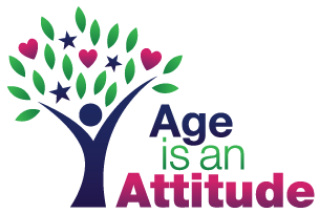Jerry Stockman
Jerry grew up in North Dakota – as one of three brothers in a small farming town. He was always good at math but had reservations about whether that was the right direction for his life and career. He tabled those reservations and attended North Dakota State University, getting a degree in Engineering while also being a part of the Army ROTC program.
In 1961 he served two years of active duty and then moved to Boulder, CO where he taught mathematics and both he and his father received graduate degrees. Then in 1977 Jerry and his wife moved to Seattle as Jerry had been hired by Eldec Corporation. For the next 10 years Jerry worked for Eldec and focused on his family, which included a daughter and two sons.
Jerry and his brothers in 1955
In July 1987, at the age of 48, Jerry was driving on the freeway and had a clear sense that he should be professionally engaged in helping families. He began volunteering at the Community Counseling Center in Bellevue, WA and then went back to school, getting a Masters Degree in Marriage and Family Therapy.
This interview with Jerry will dive into his decision to change careers at or near the age of 50.
AIAA: Vital aging is what we’re talking about here, so it’s always reasonable to start by asking your age.
Jerry: I’m 77 years old – and was born on June 30, 1939.
AIAA: In 1987 you went back to school and received a Masters Degree in Marriage and Family Therapy. Tell me more about that decision.
Jerry: I knew I was meant to help people. And from my volunteering at the Community Center I discovered I was naturally good at getting people to share their issues and challenges. So I investigated several graduate programs and determined that Seattle Pacific University had the right program, the right staff, and the right heart to help me build my counseling skill set.
Over the next three years I completed my graduate degree, while also working full-time to support my family.
AIAA: What was the toughest time for you in the pursuit of that degree?
Jerry: Working full-time while also carrying a demanding academic workload.
AIAA: What’s been the most rewarding part of your career change into marriage and family therapy?
Jerry: To see that some people's lives got better when we spent time together. I remember early on, this one couple walked into the room arguing ... They spent the first half hour arguing, practically yelling at each other. I finally said "Stop. Just stop. Are either of you guys enjoying this?" And they said, "No." So I said, "In between your arguments, I pick up that there is a possibility that the two of you actually like each other. I don't know what that's about, this liking thing. Did you notice it? Have you noticed it?" And I said, "Either way, what happened to that? What happened to kindness?"
I didn’t see them again and then a year later they made an appointment to see me. They came into my office and said, "We didn't come here for counseling. We came here to thank you for pointing us in the right direction: being kind to each other. Because that made all the difference in the world."
AIAA: And that got you, huh?
Jerry: That got me pretty good. I was able to be a catalyst numerous times and people’s lives got better. It filled me up. I was continually reassured that I was in the right place.
AIAA: That's great, fun story. What's a favorite quote of yours?
Jerry: "Wherever you go, there you are."
AIAA: What advice would you give a young adult today?
Jerry: There’s an old adage that says "To thine own self be true." My advice to a young person, or to any person of any age is be who you are. Be that. That's your goal. Where that leads you will take care of itself. Just do that.
AIAA: Looking back on your childhood, what would be a significant, maybe even a silly childhood memory?
Jerry: It would be when I look back on the difficult years, I spent too much time thinking about what I wasn’t good at, or what I needed to do to prove myself to others. That memory has now turned into a strength and a reminder that I can simply be who I am.
Jerry with his wife and three children
AIAA: What's one of your proudest adult accomplishments?
Jerry: Getting to know my children in the way that I regret not having done during their lives. But as adults I'm getting to know them in ever deepening ways. This is so important, that we as adults can do this. It's really rewarding because it is letting them know who I am. It can be kind of difficult, but it’s really rewarding.
AIAA: What is a value that you want to embody?
Jerry: To live a life of loving. That loving kindness is on top of everything.



